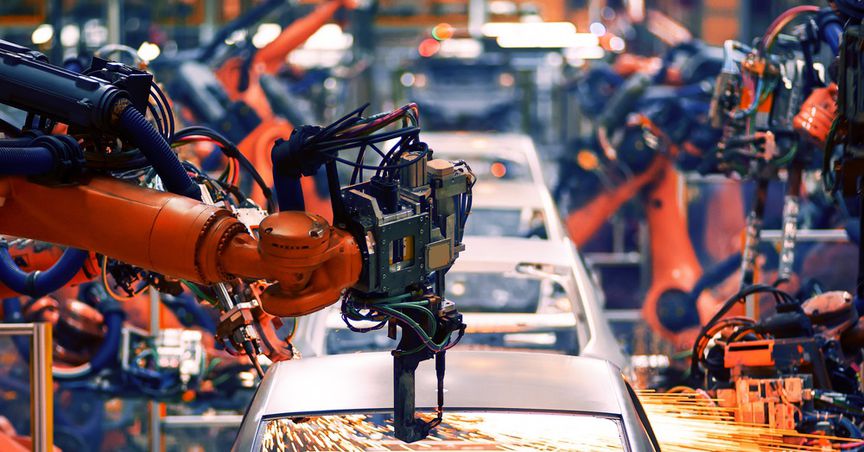Present scenario
Most of the car makers are in trouble amid the coronavirus crisis. The industry which was already facing headwinds in a move to shift towards greener sources of energy and reducing carbon footprints, is now under severe strain due to the slump in sale. Most of the manufactures were working on developing greener, cleaner technologies to reduce carbon emissions and the industry across the globe was under a transition to develop all electric cars. This transition is costly because and a lot of investment is required to develop and upgrade the existing infrastructure. In addition, the raw materials of the green technology are also costly as compared to conventional car materials specially the battery components. Hence, the automotive industry was already financial stress.
Now, to aggravate things further, the novel coronavirus outbreak has wreaked havoc on the automotive industry. In the earlier stages of outbreak, the UK car manufacturers closed a few facilities but as the situation deteriorated, the manufacturing too came to a complete halt. As per the data from the Society of Motor Manufacturers and Traders (SMMT), as the Covid-19 pandemic brings the auto industry to a halt, the car sales in March recorded new lows in the last two decades in the United Kingdom. The new registration of cars dropped by nearly 45 per cent in March. France and Spain saw steeper declines in car registration by 72 per cent and 69 per cent, respectively. The part suppliers and automakers have also scrapped their trading outlook.
In the past few decades, the world has been transformed through globalisation, everything is available everywhere. Most of the best-selling car models are universal and are sold in different countries with minor changes done to make the final product sell in the local market. To make this happen, supply chain plays a vital role in supporting the automotive industry. While the car makers are having their presence in most of the countries, the parts are mostly sourced from dedicated manufacturing facilities. Its well-known fact that China is a major supplier of car manufacturing parts to the world. Since the pandemic outbreak in Wuhan (China), the supply of parts got disrupted. Major car manufacturers had limited stock and had to cut the production.
In the last three months, the Covid-19 outbreak has claimed more than 2 billion lives across the globe and has brought the world to a grinding halt. The governments around the world have imposed lockdowns and the travelling is restricted. With the sales numbers already declining for automotive industry due to transition in technology, to add insult to injury, the outbreak of the Covid-19 has happened.
Basically, the industry was not ready to make a shift to greener technologies as these are quite expensive and needs time and government support. This was further exacerbated with the outbreak of the Covid-19. In the United Kingdom, as the showrooms were ordered to shut by the government in order to contain the spread of the deadly virus, the sales have suffered.
Mercedes Benz maker reports plunge in earnings for Q1 FY20
Due to the coronavirus pandemic, Daimler AG, the maker of famous Mercedes Benz brand is going to record a plunge of nearly 70 per cent in first-quarter operating profit, as reported in its preliminary results. The company might struggle to pay dividends as its cash flow has been affected. This drop can be directly attributed to the lockdowns imposed by the government to contain the spread of the pandemic.
While both vehicle sales and revenue are likely to fall this year, the company’s preliminary adjusted earnings before interest and tax (EBIT) slumped by 68.9 per cent to 719 million euros in the first quarter of 2020 from 2,310 million euros in the first quarter of 2019.
- Mercedes-Benz vehicles Adjusted EBIT was down by more than 56 per cent to 603 million euros in the first quarter of 2020 from 1,372 million euros in the first quarter of 2019.
- The adjusted EBIT from Daimler Trucks & Buses was down by 55.33 percent to 247 million euros in the first quarter of 2020 from 553 million euros in the first quarter of 2019.
- The net industrial liquidity of Daimler also reduced to 9.3 billion euros in the first quarter of 2020 from 11 billion euros in the comparative period same year.
The company has stated that it understands that it is complex to reassess the forecast of the fiscal year 2020 as the production, supply chain and demand have been disrupted and all related sectors have come to a halt due to outbreak of this pandemic. Hence, the company expects the revenue to be on the lower side this year as compared to the previous financial year.
The company has however expressed its confidence of withering the storm caused by the Covid-19 as it has preserved cash and is well positioned to manage the business as it has increased its financial flexibility. (The detailed quarterly results of the company are likely to be out by 29th April 2020.)
Its global rival, British Motor Works (BMW), earlier this month had also reported drop in UK sales by 44 per cent in the first quarter of the fiscal year. The coronavirus pandemic has devasted the global auto industry.
UK Automotive Industry
The automotive industry has a significant contribution in the United Kingdom’s economy. According to the Society of Motor Manufacturers and Traders, the UK automotive industry adds nearly £19 billion value to the UK economy and generates more than £80 billion turnover. The UK exports nearly 80 per cent of its cars in more than 150 nations. In 2019, nearly 80,000 commercial vehicles, 2.5 million engines along with 1.3 million cars were manufactured in the United Kingdom. Close to £3.75 billion which is invested every year in the R&D by the UK’s automotive industry. Also, more than 800,000 people are employed in this sector.
Nothing much can be said now as the novel coronavirus has taken a toll on the global economy. The industry was under transition towards cleaner emissions and to make next generation cars more affordable; and was on the path to recovery after Brexit. But apart from the corona impact, the plummeting oil prices will also act as a major deterrent as making conventional cars would still be cheaper and the people might opt for conventional cars as driving them would be cheaper due to lesser fuel prices. The manufacturers are awaiting upliftment of imposed lockdown and resume production activities, to decide the further course of action.




